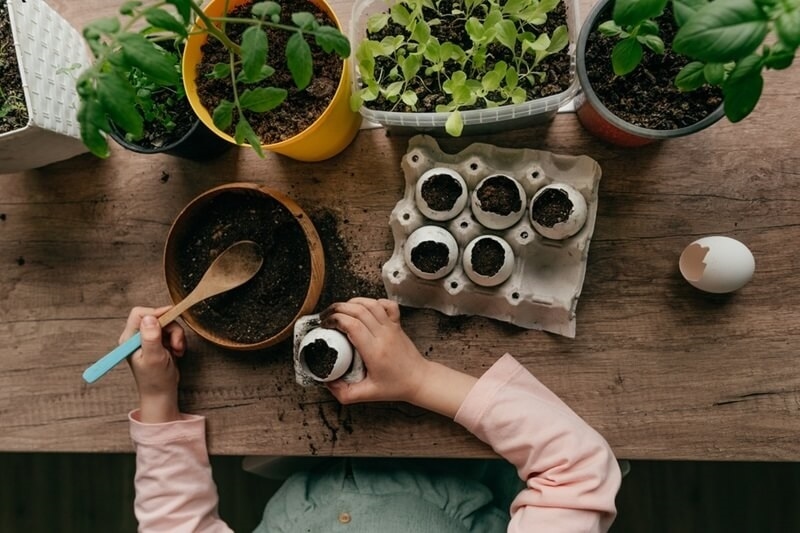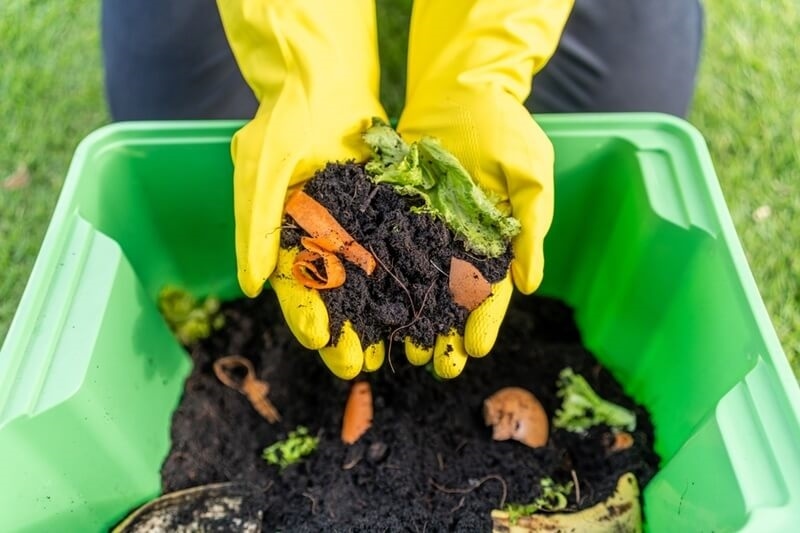
Gardening is not only the planting seeds and watching them grow, it also can be a means of living responsively and caring for the environment. A lot of gardeners are going all in on zero waste gardening to lower their trash output and build a system in which everything has a function. This method not only makes you save money but also keeps your garden healthy and eco-friendly.
If you have been thinking about how to lower waste and at the same time make your garden flourish, then you can try some easy, practical, and sustainable ideas at home.
Zero waste gardening means, in essence, turning the things you might throw out into resources and ensuring that nothing is wasted. Normally, you would throw away kitchen scraps, old containers, or garden clippings, but now you turn them into something useful. In this way, you save money, produce less, and allow for a cleaner cycle in your backyard.
This is not a method about perfection; rather, these are small but consistent choices that simultaneously benefit your plants and the planet.
One of the easiest methods to reduce waste is composting. You can recycle food scraps and turn them into nutrient-rich soil rather than just discarding them.
By integrating kitchen scraps into garden soil, you are nourishing plants in a natural way; thus, the use of chemical fertilizers is avoided. If you have a small place, compact compost bins or worm farms can suit your needs as well.

The kitchen has plenty of materials to use for the growth of your plants. Getting and utilizing your skills to reuse kitchen scraps in garden beds will conserve resources and help create healthy soil.
There are many ways to make use of kitchen waste in your garden:
These scraps can be used as natural fertilizers, which in turn lowers the demand for store-bought products.
Before you decide to purchase new gardening supplies, consider what you already have at home. With some creativity, you can transform items that would otherwise be thrown away into something useful.
Here is a list of recycled DIY garden project ideas to get started:
Not only do these do-it-yourself hacks save money, but they also help keep unwanted materials out of landfills.
Water is valuable, and wasting it when it is available is something gardeners can avoid by making small changes. Using sustainable garden hacks is a win-win situation as it will help save water and keep plants happy.
Not only do these ways bring down your water bill, but they also make your garden water-wise.
Grass clippings, fallen leaves, and pruning waste are usually disposed of in trash bags. Instead, you can recycle them within your garden. Grass clippings can be spread as mulch to enrich soil, while dried leaves are excellent for compost. Branches can be cut into small pieces and used as borders or pathways.
This cycle retains nutrients in your garden to keep it waste-free.
Chemical sprays will solve your pest issues quickly, but at a great cost to the environment. Instead, consider the option of a zero-waste garden, which will offer better options.
These natural methods protect plants without releasing harmful residues.
You can also implement a waste-free lifestyle by sharing items with others. Rather than dumping extra seeds, seedlings, or tools, why not trade them with neighbors or community members? Seed exchanges and plant-sharing groups are on the rise and are instrumental in cutting down overall consumption.
It also allows you to establish better relationships with people who have the same interest as you such as gardening.
Old tools, broken furniture, or even cracked kitchen bowls can resurrect in the garden. The frame of an old chair can be the support through which beans will climb, or a broken ladder can be turned into a vertical planter. These DIY recycled garden ideas not only give your area more character but also help in waste reduction.
If you want to avoid buying fertilizer, creating your own with minimal effort is a good choice. For example, leaves of nettle and comfrey can be soaked in water to get a natural plant feed. Grass clippings and straw also work well if you want to use them as mulch and keep the soil rich and moist.
Making fertilizers at home is a win-win situation, as you both lower the waste and the consumption of plastic packaging from the store-bought products.
You don’t need to make a lot of effort to have your garden sustainable. A list of some minor or daily changes you can employ is:
Implementing these environmentally friendly garden hacks allows you to maintain your daily eco-friendly practice without making any significant investments.
Gardening could be an integral part of a sustainable lifestyle. Your garden when paired with other zero waste lifestyle tips such as carrying reusable bags or avoiding single-use plastics, is a step towards less waste in daily life.
For instance, growing your own food is a way to eliminate the plastic packaging of food from supermarkets. Moreover, composting helps in reducing your garbage output. Thus, gardening doesn't just make your backyard happy but also the whole planet.
If you're new at this, it will be better to stick to minor changes that you can do right away, but also significant ones. This will show you how to change the garden with some simple changes for waste reduction:
These substitutions are easy, inexpensive, and very effective.
Gardening is meaningful in itself, but you can add more meaning to your gardening by making it more of a zero-waste practice.
You can be an amazing gardener while being kind to the earth by putting these simple changes into practice, as well as some other tips for a zero-waste lifestyle into daily living. What you do in your little backyard can translate into something much larger around the world!
This content was created by AI